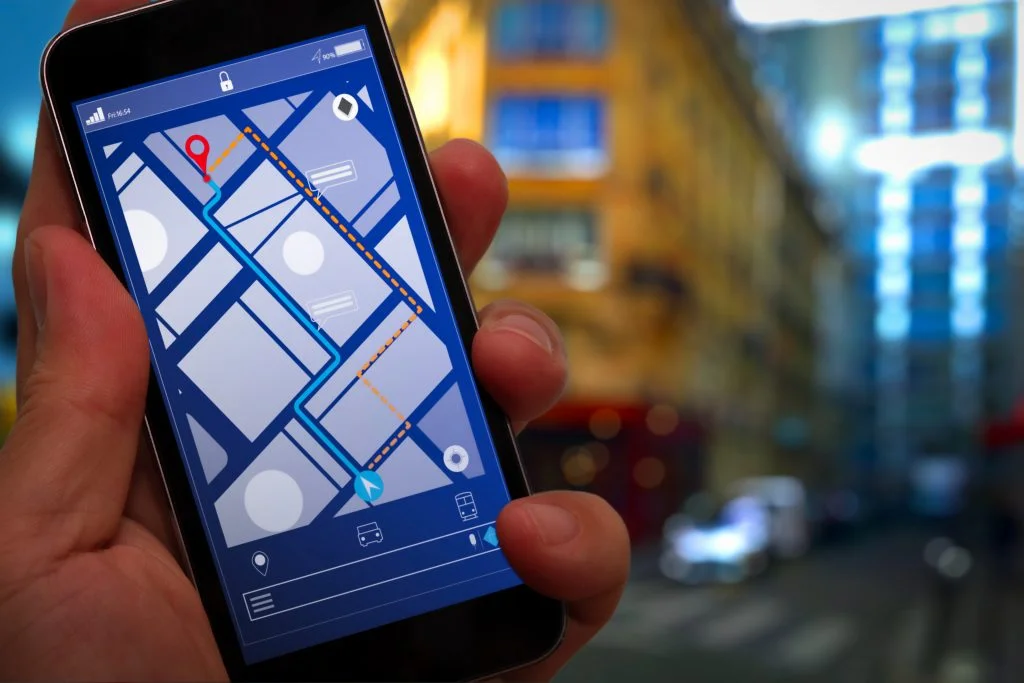Artificial intelligence (AI) plays an integral role in monitoring and analyzing mobile device activities, often without users even realizing it. Whether for legitimate purposes like targeted advertising or more nefarious reasons such as surveillance, the rise of AI-powered tracking has raised concerns about privacy. Understanding the signs that your phone is being tracked can help you take the necessary precautions to protect your data and privacy.
These are Signs To Look Out For That AI-powered tracking
1. Unexplained Battery Drain
One of the most noticeable signs of phone tracking is an unexplained and sudden decrease in battery life. AI-powered tracking software often works in the background, consuming battery power by running complex algorithms and constantly sending location data. If your phone’s battery drains significantly faster than usual without an apparent cause, it could be a sign of surveillance or tracking software running in the background. This occurs because the tracking software is designed to remain hidden, consuming resources without your knowledge.
2. Increased Data Usage
An unexplained spike in data usage can indicate that your phone is transmitting data without your consent. AI-based tracking tools often use data to relay information about your activities, including your location, internet browsing habits, or app usage. If you notice excessive data usage when you haven’t been streaming or downloading large files, it’s worth investigating whether there is hidden software on your device. In some cases, AI surveillance systems send encrypted data to third-party servers, which can significantly increase your data consumption.

3. Overheating Without Heavy Usage
AI-based tracking software that operates continuously can cause your phone to heat up even when it’s not in use. Modern smartphones typically get warm during intensive activities like gaming or streaming, but if your phone becomes hot when it’s idle or performing basic functions, it may indicate that an AI-powered application is actively running in the background. Tracking software often uses GPS and internet connectivity extensively, contributing to overheating issues.
4. Strange Behavior and Unusual Pop-ups
Another indication that AI is tracking your phone is strange behaviour, such as random pop-ups, app crashes, or sudden app launches without your input. AI-powered spyware may modify your phone’s settings, disrupt normal functions, or hijack your apps for its purposes. If you notice unfamiliar applications on your phone that you don’t remember installing, this could be a sign of tracking or monitoring software. These unknown apps often mask themselves as harmless tools, but they collect and send sensitive data to third parties.
5. Strange Background Noise During Calls
If you hear unusual clicking sounds, static, or echoes during phone calls, it could indicate that someone is monitoring your conversations. AI-based tracking systems can intercept and record calls, which can cause interference with the normal functioning of your phone’s microphone or speakers. While occasional audio issues during calls are normal, consistent background noise, especially when calling in a quiet environment, could be a red flag that your phone is being tracked.
6. Slower Performance
AI-powered tracking software can slow down your phone’s overall performance by consuming valuable processing power. If your phone is lagging, apps are taking longer to load, or your operating system is freezing regularly, this could indicate that there is hidden software operating in the background. Spyware and AI monitoring tools often run complex processes that can interfere with normal phone functionality, causing your device to become sluggish.
7. Unexpected Restart or Shutdown
Unexpected restarts or shutdowns are unusual, especially if your phone is in good working condition. These issues may occur if tracking software needs to reboot the system to implement changes or record data. If your device shuts down or reboots without any input from you, it could indicate the presence of tracking software, which may be using AI to manipulate system functions remotely.
8. Browser History Mismatches
If your browser history contains unfamiliar websites that you don’t remember visiting, it could indicate that AI is tracking your web activity and redirecting your traffic. In some cases, tracking software injects malicious codes that cause your browser to visit certain pages to collect data. This is often done without the user’s awareness, making it challenging to pinpoint the cause. Keep an eye on your browser history and investigate any unusual sites you see listed.
9. Frequent Location Requests
AI-powered tracking systems heavily rely on location data, and one sign that your phone is being tracked is frequent location requests. If apps that don’t need location access start requesting it regularly or if your phone frequently prompts you to allow location sharing, this could be a sign that an AI-powered tool is tracking your movements. Location data is valuable to trackers, as it helps them build a profile of your daily routines, habits, and travel patterns.

10. Unusual Messages or Texts
Another sign of AI-based tracking on your phone is the receipt of strange messages or texts. These could be in the form of random symbols, codes, or links sent by tracking software to test its connectivity or functionality. AI tools may also send messages to control or activate hidden features on your phone remotely. If you receive unexpected or cryptic messages, it’s worth investigating further to ensure that no third-party software is accessing your device.
What to Do If You Suspect AI Tracking
If you notice any of these signs and suspect that AI is being used to track your phone, there are steps you can take to secure your device. First, check your app permissions and remove any suspicious apps or ones that request unnecessary access to your data. Regularly update your phone’s operating system, as updates often contain security patches that can prevent spyware from operating. Using antivirus software and encryption tools can also help protect your data from malicious tracking.
Lastly, resetting your phone to its factory settings is a more drastic but effective way to remove tracking software. However, this should only be done after backing up essential data.
Arthur is a senior member of the communications team who has worked at several well-known companies over the past 10 years. As a writer with many years of experience in the technology sector, focusing on reviewing mobile phones and accessories, he has written about many products or has been hands-on with them at some point




